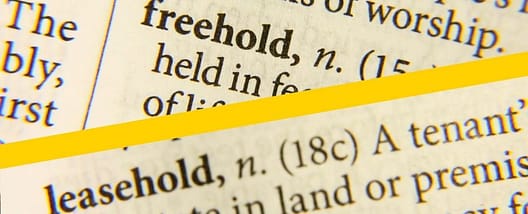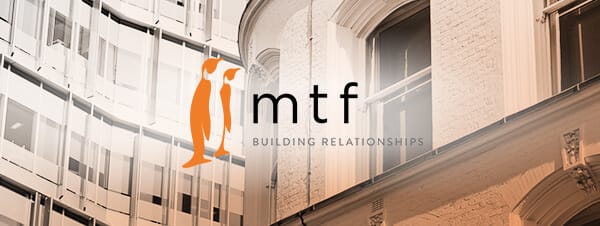The use of bridging finance will typically involve the purchase of a property and as a result, it is very important to know the difference between leasehold and freehold. Whether the property is leasehold or freehold will have a notable impact on the running costs of the property, the ability to make changes to it and how easy it is to re-sell.

What is a freehold?
A freeholder is someone who owns the property and land outright. This person can therefore decide whether they want to make changes to it and do not require permission from anyone else (except the local council). It also means that they are responsible for any maintenance and must pay for things like keeping up their exterior, driveway and garden. Most homes in the UK are under a freehold and the ones that are leasehold are typically under some form of shared ownership scheme.
To recap, a freeholder:
- Owns the property and land outright
- Can make changes at their own will
- Is responsible for maintaining the property, land and garden
What is a leasehold?
A leasehold means that you own a property for the length of the lease agreement which can be anywhere from 40 years to 999 years. Whilst you have a mortgage and have purchased the property, you still cannot make changes to the property without permission of the freeholder. This could be an individual proprietor or a management company.
Most flats and maisonettes in the UK fall under leasehold which is why it is common to have one communal area, area for waste disposal, shared driveway and garden which is covered in the service charges. You are also required to pay ground rents which as it sounds, is for renting the ground and the cost of this has increased significantly over the last few decades. In fact, research shows that the cost of ground rents is doubling every ten years and the average household is paying £200 to £400 per year. (SOURCE: THE GUARDIAN)
If you are looking to make any additions or renovations to the property such as removing any walls, adding a conservatory or even adding an air conditioning unit, this must first be approved by the freeholder. Plus, the freeholder has the right to charge you for simply making a change to the original property. Some freeholders charge money for just responding to requests to make changes and some will charge hundreds or thousands to make a change go ahead.
One of the biggest debates you can have is that a freeholder may reject your right to have pets in the building. Despite owning the property, the freeholder has the final say as to whether your cat or dog can stay in the same residence. This will be outlined in the lease.
To recap, a leaseholder:
- Only owns the property for the length of the lease agreement e.g 99 years
- Cannot make changes without the freeholder’s permission
- Will usually pay service charges to maintain the area
- Needs permission to have pets
Why does the length of the lease matter?
Mortgage lenders usually need a lease to run for 25 to 30 years beyond the end of your mortgage. So, if you have a 25-year mortgage, the lease needs to have at least 50 to 55 years before it ends. Subsequently, they say that it may be difficult to sell a property if the lease is less than 80 years because lenders will not give a mortgage on it. Therefore, it can be worth considering how many years will be left on the lease when you plan to sell it.
If you have been living in the property for more than 2 years, there is always the option to extend the lease by 90 years and there is usually a cost for this. If you cannot agree on cost with the freeholder or you believe that you have been overcharged, you can appeal to the Leasehold Valuation Tribunal.
Can I buy the freehold on a leasehold property
Yes, you may be able to gain the elusive freeholder status by buying the property outright known as ‘enfranchisement’.
Although the process can involve complex legal procedures and may be costly, it gives a lot of benefits to you as a homeowner, giving you savings on future ground rents, service changes and the freedom to make changes to your property.
Certainly if you live in a block of flats or small development, there is an opportunity to come together and share the costs of the freehold. It means that you can extend your leasehold for 999 years and only have to pay the legal fees, potentially saving you thousands.
Why is this important in bridging finance?
Whether the property is leasehold, or freehold is very important when purchasing a property. If you require bridging finance in order to purchase and develop the flat or home, you need to consider the freedom to make changes to the house and also any additional running costs.
If the ground rents and service charges are high, property owners/ lease holders need to factor these costs in every month in addition to your rent.
Above all, if you are looking to make changes to a number of flats, you may have to budget additional costs to request these changes. Not only may it cost £10,000 or £20,000 to do an extension, but your freeholder may charge you thousands of pounds just to make the changes.
Finally, the time on the lease will be important when trying to resell the property. In which case, you may have to extend the lease which may cost anywhere between £5,500 to millions of pounds, depending on the property and where it is located.
A bridging loan with mtf can give leaseholders crucial access to finance when they are looking to extend a lease and improve the value of their investment property, preventing them from having to sell at a heavily discounted price.
As an example, mtf was approached by a client was looking to raise funds to extend a lease on an existing property and put down a deposit on an additional investment property. The client had struggled to get financing from a majority of lenders as there was a short timeframe of seven years left on the lease.

We provided a £650,000, 12-month bridging loan, based on an open market value of £1 million. The process to extend the lease then commenced, with further funds provided during the term so the client could purchase a long lease and increase the value of the property.
By extending the lease the client was able to secure a long term buy-to-let (BTL) mortgage. The client was also able to purchase the additional investment flat.
If you would like to speak to a member of the team about how a bridging loan could help- call 0203 051 2331 or email us at enquiries@mt-finance.com
